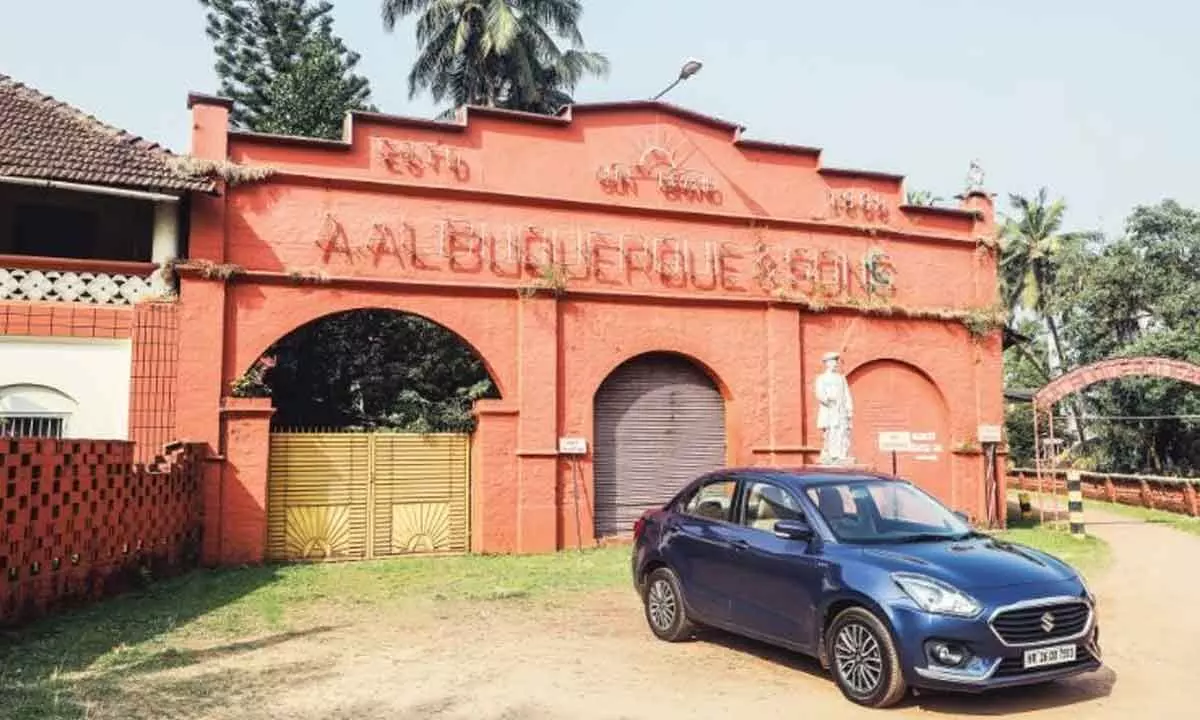Mangalore tile industry in state of terminal decline

The city had around 75 tile factories in the early 1990s and 12 till the 2010s. Now, there are only three functional units left, with the oldest having been established in 1868
Mangaluru: The famed tile industry in Mangaluru, that manufactures roof tiles under the brand name 'Mangalore tiles', is in a state of decline with only memories of its glorious past, as the industry is facing a crisis due to several reasons including the advent of concrete culture.
'Mangalore tiles' had become a generic name for roof tiles with their popularity and international reputation earned over decades through its quality, shape and colour. The Mangalore tile industry has a history of 157 years since the first factory was opened in the coastal city here in 1865. The business which bloomed till the latter part of the last century, declined over the last three decades, mainly because of shortage of raw material and the gradual change in lifestyle.
The city had around 75 tile factories in the early 1990s and 12 till the 2010s. Now, there are only three functional units left. Changing trends and construction methods have hit the tile industry hard and the demand for Mangalore tiles took a downward plunge starting in the 1980s.
The prolonged over-extraction of resources (hard laterite clay) has also contributed to the decline of the industry. Industry sources say the market started going down in the 1980s due to a host of issues including non-availability of labour. However, several units survived by diversifying production. The downward trend continued in the last two decades as the use of tiles lost its glory with the construction boom following liberalisation. Non-availability of labour, manufacturing costs and transport of tiles also underwent drastic change pushing the industry into crisis.
Still, a few factories operated at minimal levels, with replacement supplies being the main consideration. The functioning tile factories in Mangaluru at present are Sovereign Tile Factory at Kudroli (established in 1929), Cascia Tile factory at Morgan's Gate (1916) and the oldest Albuquerque Tile factory at Hoige Bazaar (1868).
Several factories set up by local entrepreneurs had to be closed down over the years due to reduction in demand and the shortage of raw material, industry sources said. It is recorded that German Christian missionaries known as 'Basel Mission' were the earliest to introduce the tile industry in Mangaluru in 1865. Among them, George A Plebst, who found that hard clay which is the raw material for tiles, was abundant in the region, set up the first tile factory here. Starting with a limited production of tiles, the industry flourished and grew into a large enterprise which started exporting tiles to foreign countries. Several industrial units came up which exported tiles to Sri Lanka, Myanmar, Far East, Middle East, Europe and Australia. Mangalore tiles were said to be the only tiles recommended for government buildings under the British Raj.
The first Indian tile manufacturer was Alexis Albuquerque Pai, who founded 'A. Albuquerque & Sons' tile factory in 1868. The enterprise is still run by the fourth generation of the family through George Albuquerque Pai. Rego Sons tile firm was started in 1871 by Peter Paul Lobo, one of the pioneers after Albuquerque. His nephew Domingo Rego took over the business after his death, which was again run by two more generations in the family.
The trend continued even after the nation's independence, with Mangalore tiles manufactured by several factories set up here providing roofs for families and buildings across the country. Some manufacturers are keeping the business alive merely as a sentimental norm to keep family tradition despite the business turning non-profitable, the sources said.
Ian Lobo, partner of Cascia Tile factory, told PTI that the market for roof tiles is very less these days. "We are concentrating on bricks now. Roof tiles can still be manufactured, but it will be very difficult to maintain the earlier quality," he said, hinting at shortage of raw materials. Lobo said only Albuquerque & Sons are producing roof tiles now. All other units in Mangaluru are closed, he added. Industry sources said lack of government patronage is another reason for the decline as it is discouraging tiles, while recommending highly toxic asbestos and synthetic roof sheets for constructions.
Recent taxes too have made the industry unprofitable. Though the industry is gradually declining in the coastal region, it is not yet time to compose a requiem for it. People and architects with an eye for aesthetics still go for tile roofs in many new constructions. Some who build houses with sloping roofs also use tiles for beautification and to plug leaks. People are now generally choosing concrete structures considering the maintenance aspect of tiles, for which labour is also unavailable, an architect said.
Many who have nostalgic memories about the chimneys across the coastline, still believe that it is the responsibility of the present generation to preserve the old style to some extent as a small piece of the more than one-and-a-half century old history. A study on the history of Mangalore tiles by senior college professors P Sudharshan and R Velmurugan, says that the industry has to change and get acclimatised with present-day trends by focussing more on innovations, promotions and improvisation of products in order to meet the expectations of new customers. The Department of Posts, Karnataka circle, released a special cover on Mangalore tiles at a function here on October 30, which reminded many of the glory and pride that the coastal city had about the industry.







